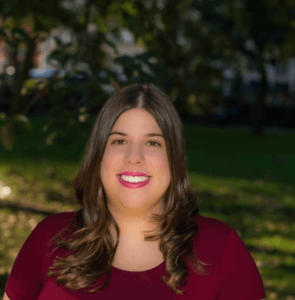Decision making is a big part of life. We are often faced with various options that we have to choose from. It can be easy to get stuck or feel lost when decision making. There can be a lot of pressure around decision making and worry about making the wrong choice. The idea of having to make a choice can be paralyzing, leading one to lose sight of what their gut is telling them. Decision making is a skill that has to be learned.
WHY IS DECISION MAKING SUCH A BIG DEAL?
On daily basis we are constantly making decisions. Thinking about what to wear, what train or route to take to work/school, what we want to eat, will we exercise, etc. We are making choices on what money to spend that day. Deciding about going out to eat, buying clothes, getting a haircut, etc. Time management is another piece of decision making that can come up multiple times a day.
As we progress through life, we are put in positions where we have to choose a direction to go in. We must decide things like what college to go to, what to study, what career path to take. Relationships also require decisions relating to friendships, romantic partners, and family. We have to consider what kinds of people we want in our life, what types of relationships we are seeking, what boundaries do we want to set, how much we want to express and disclose to others.
There are many things that we might decide without giving it much thought. On the other hand, there are decisions that we focus a lot of attention on. This can be extremely stressful and make it harder to continue making choices around the smaller stuff. Things that originally felt easy, can start bringing more pressure. Learning how to navigate this is key. So let’s talk about how to go through decision making with more ease.
DECISION MAKING FORMULA
You can remember this through the acronym SOLVE
- Step back and be objective. Observe and describe through reasoning what choice has to be made. Clearly identify what your decision is without judgements and worries. Stick to facts- who, what, when, where, why. For example, if you are deciding what colleges to apply to, the choice is “what college do I want to go to.” Make sure not to add fears or concerns or predicted outcomes such as worry about making the wrong choice, or not getting accepted.
- Observe available options. List out all the options you are deciding between. Taking out judgements and worries here is extremely important. For example, back to thinking on college, don’t rule something out due to fear you won’t be accepted. Also, think about what resources you have related to this decision. Ask for support and advice as needed, but make sure to stick to your feelings. Don’t make the choice just because someone else thinks it’s the right one.
- List barriers. Get clear on what obstacles and concerns you are facing related to this decision. This relates to both emotional and environmental circumstances. For example, emotionally, lack of confidence may come into play. Environmentally, money may be a concern. Once you list out your barriers, it gives you more control and perspective to overcome them. This will help you move into problem solving and finding solutions.
- Values Driven. Get clear on your values and priorities and use that as a guide. Making a decision that goes against your values will likely lead to regret. If you use your values and priorities as your guide, you maintain your self-respect and limit regret regardless of the outcome.
- Think about what will work. Consider the realities of your circumstances as they relate to the decision. For example, let’s say you are really interested in going to a certain college because it is well known for the major you want to study. Some important factors you need to also consider are location and finances.
Remember that no one can predict exactly what will happen and how things will play out. Take the pressure off of decision making by using the steps above to do your best and know that it is a little bit about trial and error. It’s ok if you change your mind after seeing the outcome of your choice. It doesn’t mean it was the wrong decision, it just means you are again faced with a choice, and you can handle that.
Decision making can be stressful. Download your FREE stress management guide to help tackle the stress more effectively. Download your guide here

Alyssa Mairanz, LMHC, DBTC
Alyssa Mairanz provides counseling and therapy services for life transitions, relationship issues, self esteem, depression, anxiety, and DBT and Psychodynamic therapy in a NYC group practice in the Flatiron District near Madison Square Park. She also serves the Village, Chelsea, Union Square, the Financial District and the surrounding areas.
Empower Your Mind Therapy’s mission is to helps our clients build the life they want and find more happiness and satisfaction.



